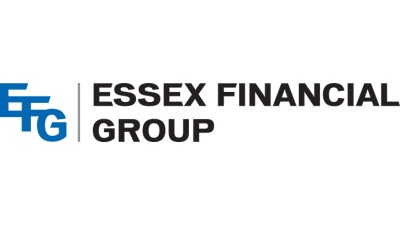Despite Caution From Banks, Denver Construction Financing Remains Robust

Denver’s construction boom shows no sign of slowing. A continued influx of young professionals into the market and the migration of major corporations into one of the nation's most livable metro areas ensures strong fundamentals for financing new development.
But faced with mounting regulatory pressures and concern over the possible end of the cycle, banks have become more conservative when it comes to leverage terms.
Essex Financial Group Vice President of Loan Production Michael Salzman sees the trend as a sign of cautious optimism. Lenders continue to have strong interest across all asset classes in the Front Range, but past experiences have made banks in particular wary of future bumps in the road.
“No one really knows what part of the cycle we are in,” Salzman said. “This has been a good, long cycle so far, and while there is nothing indicating that there is trouble ahead, banks seem to be growing increasingly cautious. While banks are still originating construction loans, they’re pushing back hard on leverage and hope that borrowers will bring extra equity to the table. As a result of this trend, life companies and private debt funds are becoming more competitive in the construction lending space.”
A large supply of Class-A multifamily projects in Denver has banks taking pause. Of the 13,370 new apartment units expected to come online by the end of the year, many are high-end, luxury product. Concessions have risen in an attempt to lower vacancies, with the value of concessions hitting 6.2% in Q1, up from 4.4% in Q4 2016.

Banks are looking at how net absorption will play out with the new supply, Salzman said. Class-B and C properties, particularly buildings with long track records of good operating history, continue to remain desirable as cap rates remain low. More than the asset type, the location and quality of the deal has a greater influence on its financial viability.
Life insurance companies have become more attractive lenders in the Denver market as banks pull back. While they are more conservative in selecting projects to finance, life companies offer competitive interest rates and the opportunity to source permanent financing for the project before breaking ground. Rather than receive a construction loan and refinance once construction is complete, borrowers have permanent financing in one loan.
For borrowers looking for high leverage and nonrecourse loans, private debt funds are filling the gap in the market.
“Instead of a bank offering a 75% loan-to-cost construction loan, they might want to be around 65% or 70%," Salzman said. “But even though the banks are pulling back, there are nontraditional sources that are filling in the gap so construction can continue."
The robust but evolving Denver construction financing landscape will be a hot topic at Bisnow’s upcoming Denver Investment, Development and New Construction Forum on Oct. 19. Salzman will be moderating the panel on construction financing.
To learn more about this Bisnow content partner, click here.

